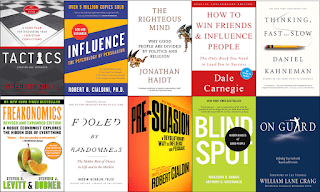Recently I’ve been bombarded with various notions a Christain psychology. This can mean a variety of different things, but I am using the term very broadly to refer to Christian specific practices or approaches to psychology. This seems like an obvious approach to psychology for Christians, but would it actually differ from secular psychology? Whether or not we need or would benefit from Christian psychology comes down to a fundamental understanding of what psychology is.

When I ask people what they think psychology is, most of them say something about counseling. This is a big part of the field of psychology, but it’s only about half of it, if that. Either way, counseling is the primary area where people envision a Christian psychology and it’s the area that is controversial among Christians so that is where I will focus.
So what is psychology? Broadly speaking, it is the scientific study of human nature. Psychologists observe people (and animals) in every way that we can to draw conclusions about how and why people think and act the way they do. Counseling is simply the area of psychology that attempts to use what is learned to improve mental health.
Psychology is a science and science revolves around peer-reviewed journals. To publish in a peer-reviewed journal requires your paper to be scrutinized by experts in the field (usually three people) to ensure your methods are legitimate and unbiased. Once published, the article becomes public so anyone can replicate your methods, either for practical use or as an attempt to disprove them. As scientists continue to test and retest various treatment methods, the ones that are most effective will become the most widely used.
Obviously, this is extremely idealistic since science isn’t quite so cut and dry (or fast), but in a broad sense, and over long periods of time, this is how science works. For this reason, Christian and non-Christian psychologists will eventually reach the same conclusions about what is and isn’t effective for improving mental. If something works for Christians, it will also work for non-Christians, unless it is based on beliefs that non-Christians are unwilling to accept. A simple example might be forgiveness. A non-Christian may think forgiveness is wrong, and therefore, not be willing to do it even though it would improve their well-being.
On the other hand, what if Christian specific methods are not as effective as non-Christian methods? In these instances, I would say Christians should adjust their methods and their theology of methods. The potential issue of Christian specific methods is the assumption that correctly following Christ will guarantee psychological well-being, but that’s not true. In fact, it’s really just another version of the prosperity gospel. God promises us salvation from sin so we can spend eternity in heaven with Him. We’ll get some benefits here and there along the way, but those aren’t promised.
Conclusion
So do we need a Christian psychology? No, we don’t because it will eventually be the same as secular psychology (if both are done well). Instead, we need more Christians in the field of psychology, and we need them to be testing and publishing what they think are biblical or Christian methods of counseling in peer-reviewed journals so others can know about their methods.
Unfortunately, in our society, many of the Christian voices in the debate have little to no scientific training, yet they make grand claims about their methods that are completely unsupported. I think there is great potential for Christianity to influence counseling methods for the better, and at the same time, an opportunity for scientific study of counseling to improve theological views about mental health. However, none of this can be accomplished without testing and publishing our ideas in scientific psychology journals.
For those seeking counseling
I feel I must finish this article with two important warnings for anyone who might be looking for a therapist or struggling with mental health. Christians and non-Christians counselors are liable to err in opposite directions. A Christian might have bad theology regarding mental health and be poorly trained as a psychologist while a non-Christian might be accepting of sin and only willing to treat the adverse consequences of it rather than the core issue. Both are equally bad so be careful not to fall in either direction.
In a perfect world, all counselors would be committed Christians with doctoral degrees in psychology and theology. Since it’s not a perfect world, I would suggest looking for a Christian who is licensed as a psychologist or counselor. This does not include biblical counselors who are only trained in theology and have no required training in science, psychology, or statistics. If you can’t find a licensed Christian, then I would expand the search to licensed non-Christians. If this seems scary, realize that I say this because I don’t know of any mainstream therapy technique that is sinful for Christians to participate in. The only potential problem I can think of would be treating the symptoms rather than the disease, but that’s something you could address with your psychologist.
For less severe problems, a pastor, chaplain, or other mature Christian may be a good person to talk to. I would just caution you to look out for any anti-scientific views that might be expressed about psychology because this suggests they probably don’t know what they’re talking about.
If you have questions or need someone to talk to, please let me know. Navigating the different types of therapy and counseling can be tricky, and it’s only made worse by the unfortunate stigma against counseling. It would be my honor help out in any way I can. The best way to reach me is at jaymedenwaldt@hotmail.com



